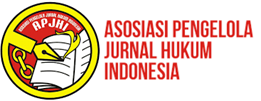The Legal Position of Corporate Crime in Indonesia
DOI:
https://doi.org/10.70193/ijlsh.v1i1.143Keywords:
Legal Position; Corporate Crime; IndonesiaAbstract
In the context of Indonesian criminal law, legal subjects extend beyond humans or individuals to include legal entities or corporations. Corporations, as legal entities that can be held accountable for their actions, are subject to a range of legal frameworks, including those outlined in various laws such as Law No. 7 Drt. Year 1955 concerning Investigation, Prosecution and Trial of Economic Crimes, Law No. 31 Year 1999 as amended by Law No. 20 Year 2001 concerning Amendments to Law No. 31 Year 1999 concerning Eradication of Crimes, Law No. 9 Year 2013 concerning Prevention and Eradication of Criminal Acts of Terrorism Financing, Law No. 31 Year 1999 concerning Corruption Eradication, Law No. 41 Year 1999 concerning Forestry and others. Criminalizing corporations differs from criminalizing individuals due to the inherently distinct nature of corporations, which is not subject to the same legal principles as individuals within the criminal law. While certain forms of punishment can be imposed upon people, they are not applicable to corporations; for example, imprisonment and death penalty. Therefore, it is necessary to impose an appropriate form of punishment on corporations in order to achieve the objectives of criminalization. Accordingly, a variety of sanctions exist that are regulated by several different laws, including probation sanctions, equity fines, diversion to alternative sanctions, supplemental sanctions, community service sanctions, the authority of external legal entities, and the requirement to purchase shares.
Downloads
References
Ali, K. (2024). Penyidikan Terhadap Tindak Pidana Korupsi Dana Bantuan Operasional Sekolah (BOS) di Kabupaten Bireuen. Cendekia : Jurnal Hukum, Sosial Dan Humaniora, 2(1), 456–464. https://doi.org/10.5281/zenodo.10531176.
Budianto, A. (2012). Delik Suap Korporasi di Indonesia (1st ed.). CV.Karya Putra Darwati.
Girsang, A., Hatta, M., & Herinawati. (2023). Pelaksanaan Peradilan In Absentia di Pengadilan Tindak Pidana Korupsi Banda Aceh. Cendekia : Jurnal Hukum, Sosial Dan Humaniora, 1(2), 107–131.
Irianto, F. (2021). Pertanggungjawaban Hukum Pidana Rumah Sakit Sebagai Korporasi Pelayanan Kesehatan. Sol Justicia, 4(2), 163–74. https://doi.org/10.54816/sj.v4i2.459.
Jenkins, B. M. (1980). Jenkins, Brian M., The Study of Terrorism: Definitional Problems. Rand Corporation.
Kristian. (2014). Jenis-Jenis Sanksi Pidana Yang Dapat Diterapkan Terhadap Korporasi. Jurnal Hukum Dan Pembangunan, 4(1), 120.
McCrudden. (2006). Legal Research and the Social Sciences. Law Quarterly Review, 4, 632–650.
Muladi. (1995). Kapita Selekta Sistem Peradilan Pidana. Badan Penerbit Universitas Diponegoro.
QC, A. P. (2008). Corporate Criminal Liability. Sweet & Maxwell.
Rahmah, A. (2023). Pertanggungjawaban Pidana Terhadap Kejahatan Kemanusiaan Berdasarkan Undang–Undang Nomor 26 Tahun 2000 Tentang Pengadilan Hak Asasi Manusia. Cendekia : Jurnal Hukum, Sosial Dan Humaniora, 1(4), 315–324. https://doi.org/10.5281/zenodo.8422382
Rodliyah. (2020). The Concept of Corporate Crime in the Indonesian Criminal Law System. International Journal of Multicultural and Multireligious Understanding, 7(1), 711–719. http://dx.doi.org/10.18415/ijmmu.v7i1.1334.
Rowe, S. E. (2015). Legal Research, Legal Analysis, and Legal Writing: Putting Law School into Practice. Stetson Law Review, 1193(2000), 1–19. http://dx.doi.org/10.2139/ssrn.1223682.















